
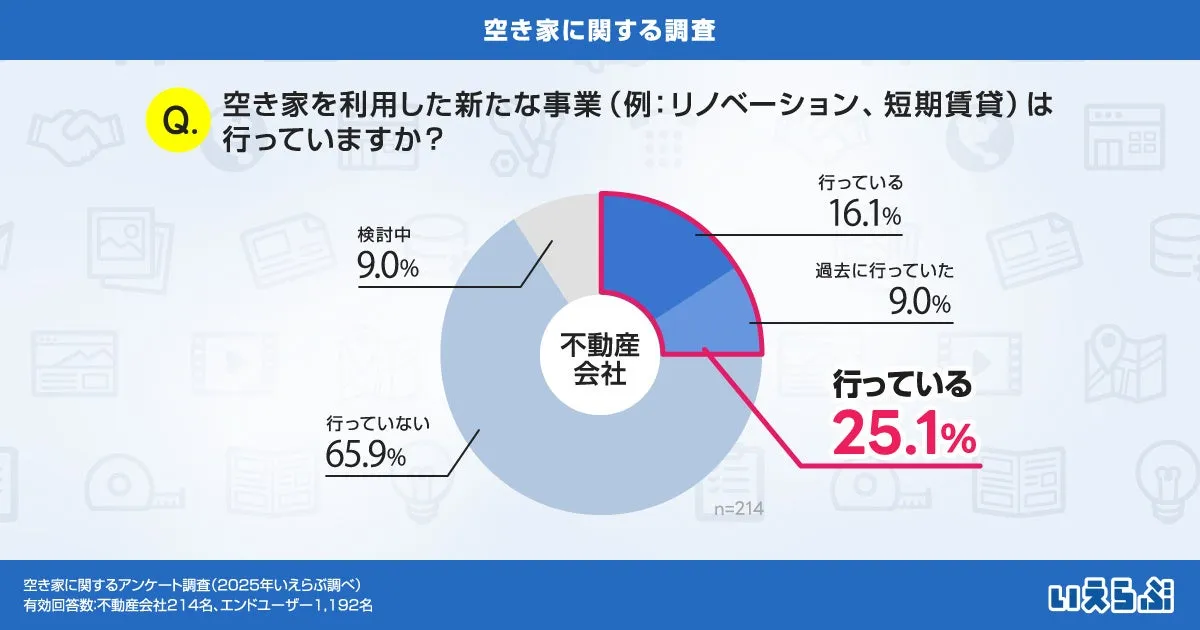
Exploring New Business Opportunities Through Abandoned Houses in Japan
Introduction
In a recent study conducted by ielove GROUP, a company specialized in digital transformation in the real estate sector, the pressing issue of vacant properties has been brought to light. This reveals the importance of exploring new business ventures related to abandoned houses, particularly against the backdrop of Japan's aging population and decreasing birth rates. With a significant amount of vacant homes reported nationwide, the study aims to discern the attitude of real estate companies and the general public towards these issues.
Survey Background
The issue of vacant homes has escalated into a considerable societal challenge in Japan. With estimates indicating that by 2025, local governments and private enterprises will need to take more significant action to address the increasing number of vacant properties, the importance of enhancing community engagement and improving living environments is becoming more critical.
In light of this ongoing concern, the survey conducted by ielove GROUP compiled insights from both real estate firms and end users regarding their perspectives on vacant homes. The gathered data sheds light on the current status of the real estate market and outlines the associated challenges.
Key Findings
1. Vacant Property Handling Experience: Approximately 60% of real estate companies have experience managing vacant properties, and nearly 50% of end users express concern about vacant homes.
2. Primary Concerns Related to Vacant Homes: The top worry among end users regarding nearby vacant homes is safety, with 55.5% citing crime concerns, followed closely by health and safety issues such as sanitation (51.6%) and risk of collapse during disasters (41.9%).
3. Engagement in Utilizing Vacant Homes: While 25.1% of real estate firms have engaged in utilizing vacant homes in the past or currently, many face obstacles in doing so effectively, even after recent legal reforms.
Detailed Insights
1. Real Estate Companies and Vacant Properties
The survey revealed that 57.5% of real estate companies have experience dealing with vacant properties. When asked about public interest in the issue, 48.2% of end users acknowledged that they are concerned about vacant homes in their vicinity. This growing awareness reflects a rising phenomenon where people are increasingly aware of the vacant homes around them.
According to a recent government report, there are approximately 9 million vacant houses across Japan, presenting a national crisis that necessitates strategic approaches by local governments and the real estate industry.
2. Concerns Over Vacant Homes
The survey found that safety concerns follow a clear ranking. End users expressed fears regarding vacant houses primarily linked to safety issues, with 55.5% indicating this as their top concern. Other worries involved sanitation risks due to potential waste and pests (51.6%) and the hazards posed by structurally compromised buildings (41.9%).
For companies managing these properties, 71.7% identified the aging condition of the properties and the complexities surrounding their utilization as major hurdles. Notably, 67.5% raised concerns over the costs associated with repairs, management, and legal processes.
In response, the revised legislation known as the Act on Special Measures for the Promotion of Measures against Vacant Houses has introduced stricter guidelines for poorly managed vacant properties. This includes expanded supervision over dangerous houses. Additionally, municipalities are now enhancing support for demolition and renovation, aiding both local governments and real estate businesses in addressing these issues.
3. The Reality of Utilizing Vacant Houses
Despite various reported methodologies for potential use of vacant houses, including renovation houses (55.7%) and accommodations like inns (44.5%), the actual engagement from real estate companies remains low. Only 16.1% of companies reported actively engaging in projects that utilize vacant properties, while a stark 65.9% stated they do not partake.
Though the amendments to the vacant house law have provided a framework for progress, significant real-world execution lag remains. For substantial advancements in managing vacant properties, resolving challenges relating to costs, legal procedures, and risks is paramount.
Conclusion
Kenichi Niwayama, Executive Director of ielove GROUP, highlights that while interest in utilizing vacant homes is growing, practical efforts are still slow to evolve. Strengthening the support systems surrounding legal procedures and associated costs is crucial to enable better engagement. Moving forward, ielove GROUP aims to streamline tools for real estate firms and facilitate the effective management of vacant properties.
Survey Overview
This survey was conducted between April 14 and April 25, 2025, targeting both end users and real estate professionals affiliated with ielove GROUP. In total, 1,406 valid responses were gathered through an internet-based survey platform.
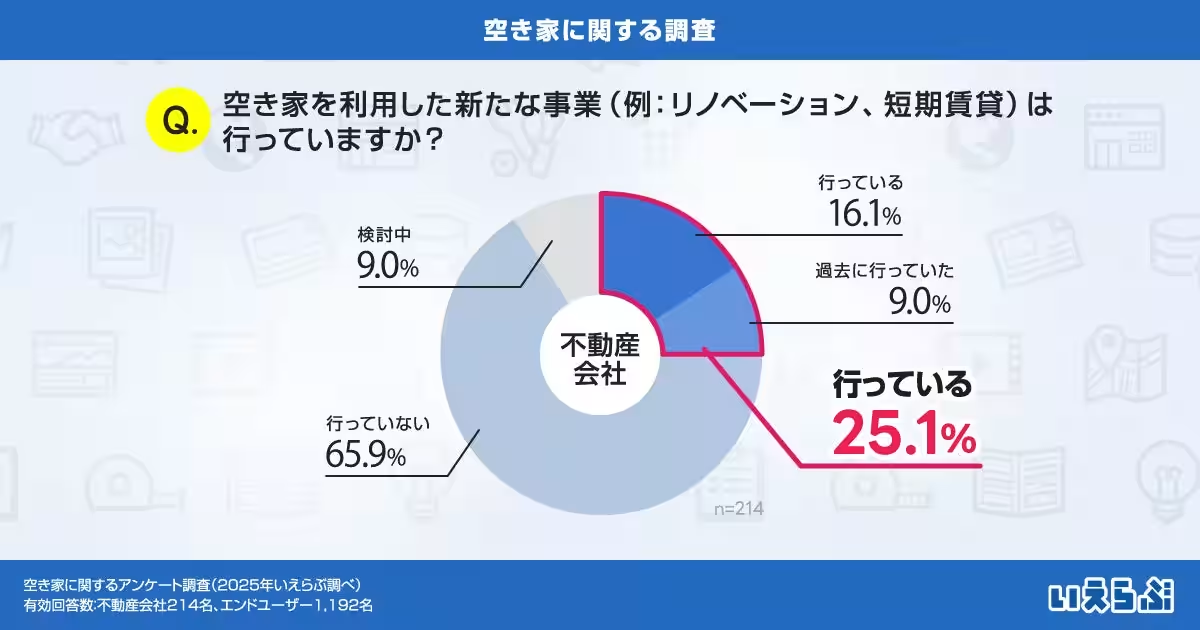
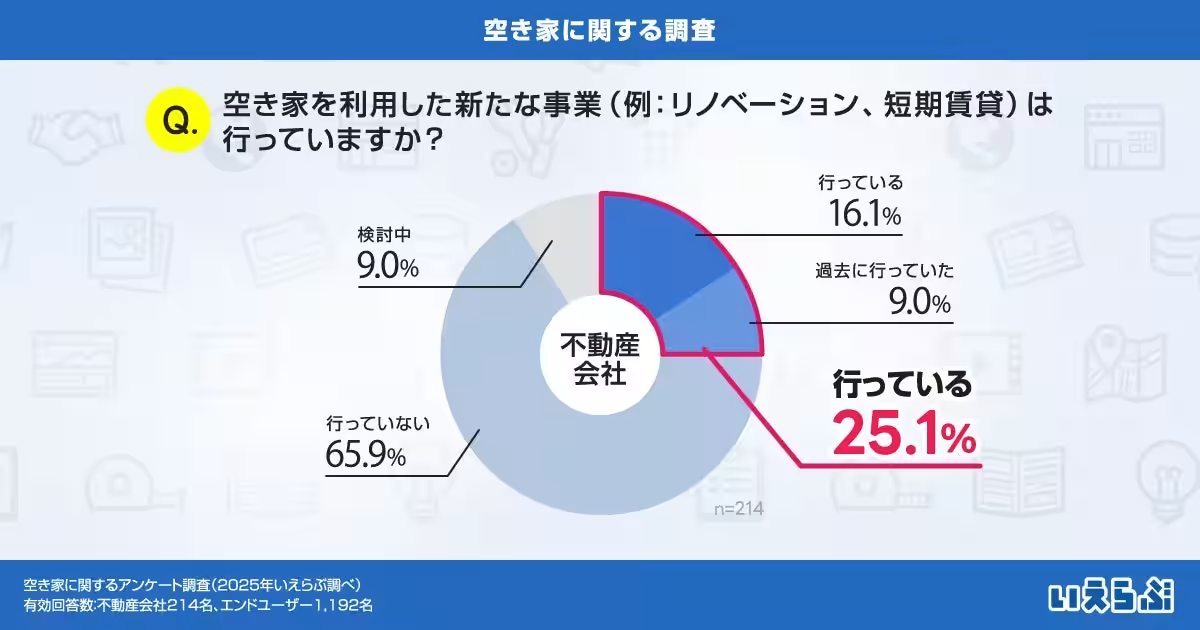
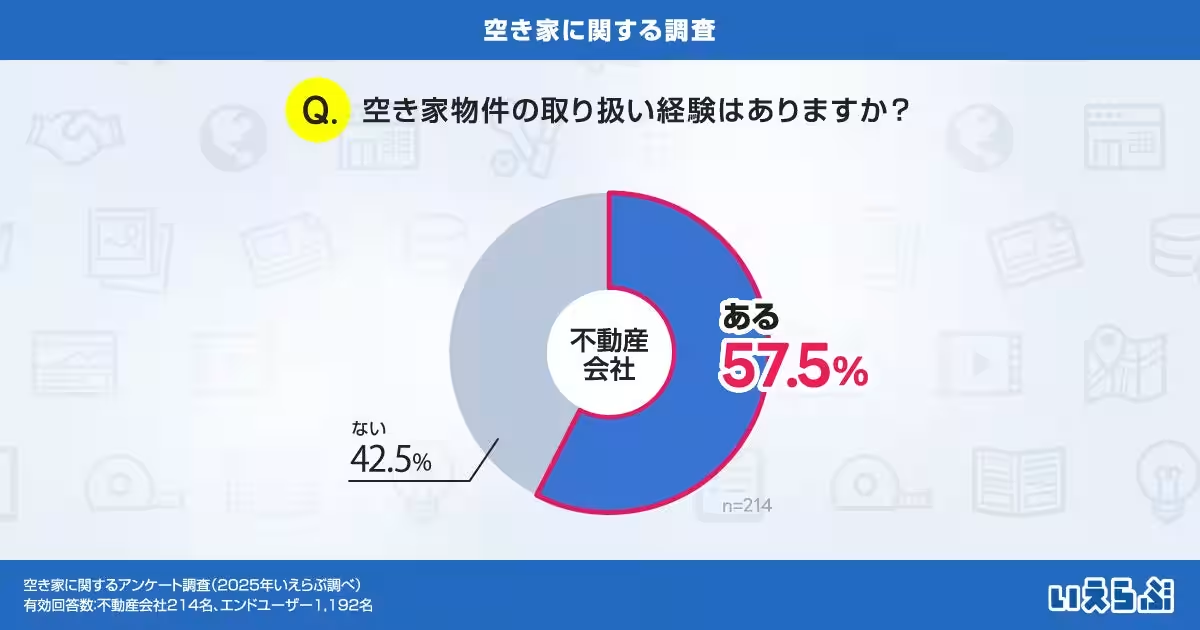
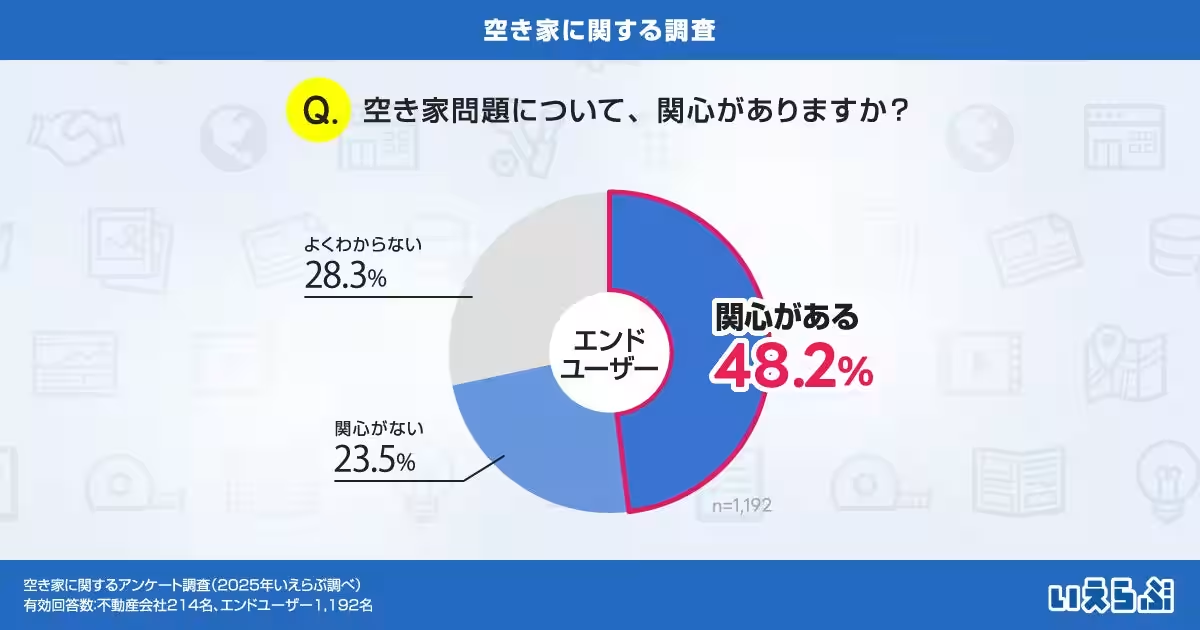
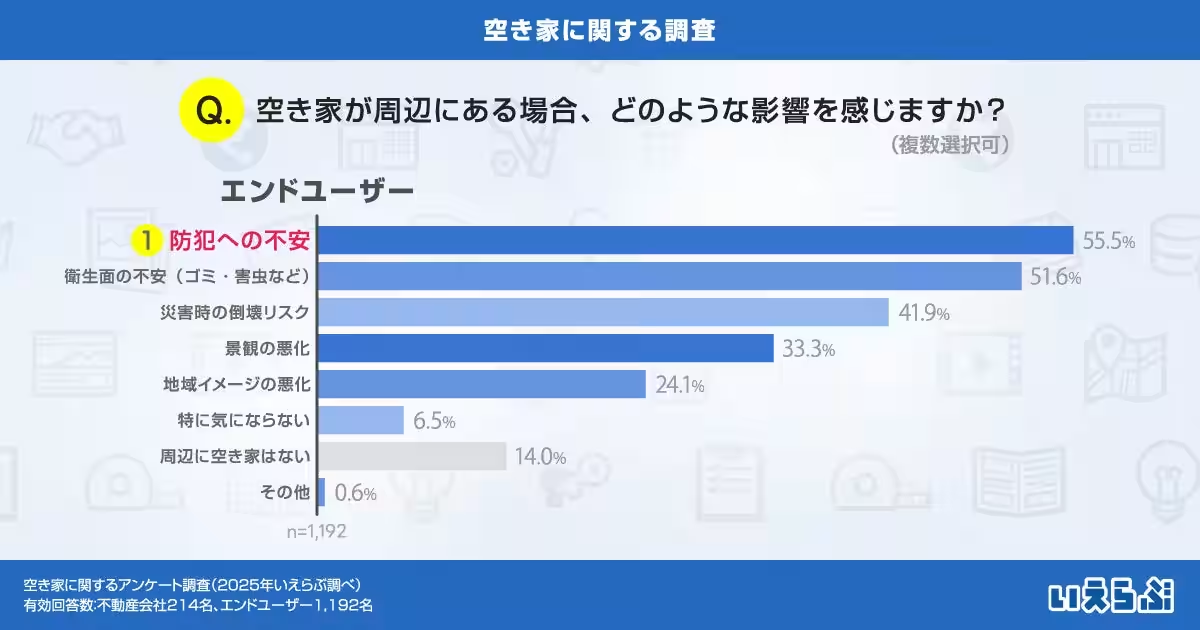
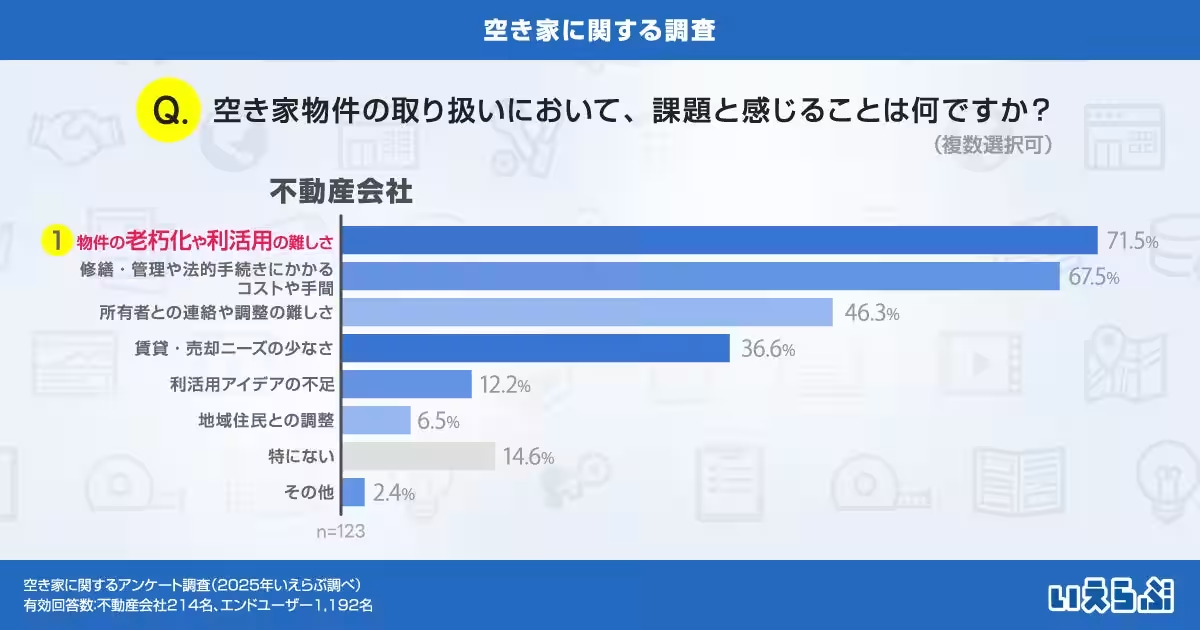
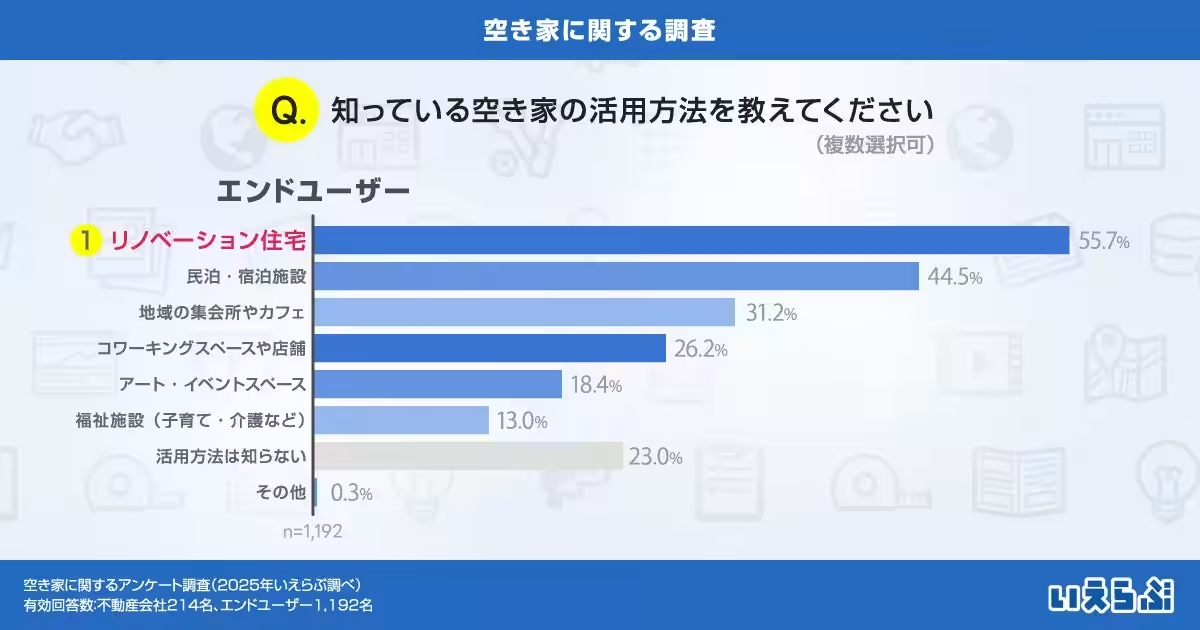

Topics Consumer Products & Retail)










【About Using Articles】
You can freely use the title and article content by linking to the page where the article is posted.
※ Images cannot be used.
【About Links】
Links are free to use.